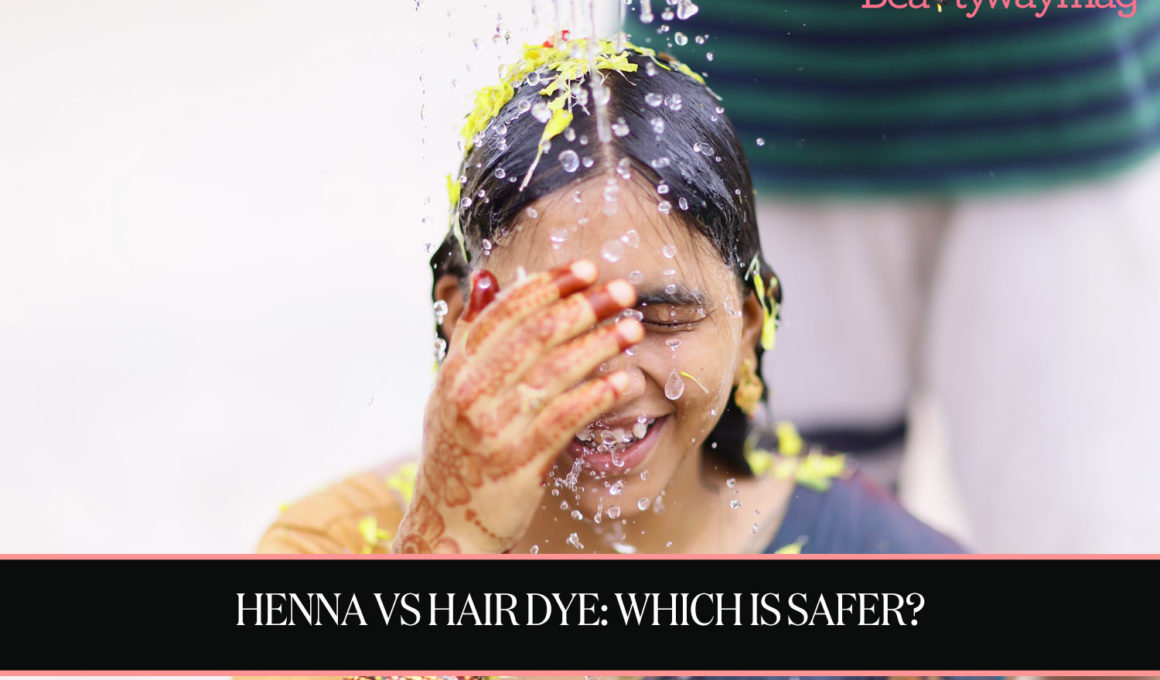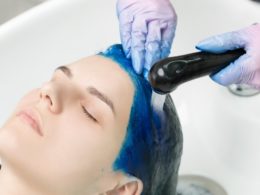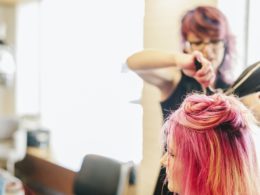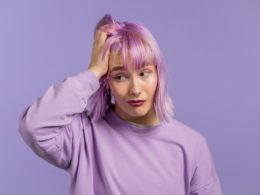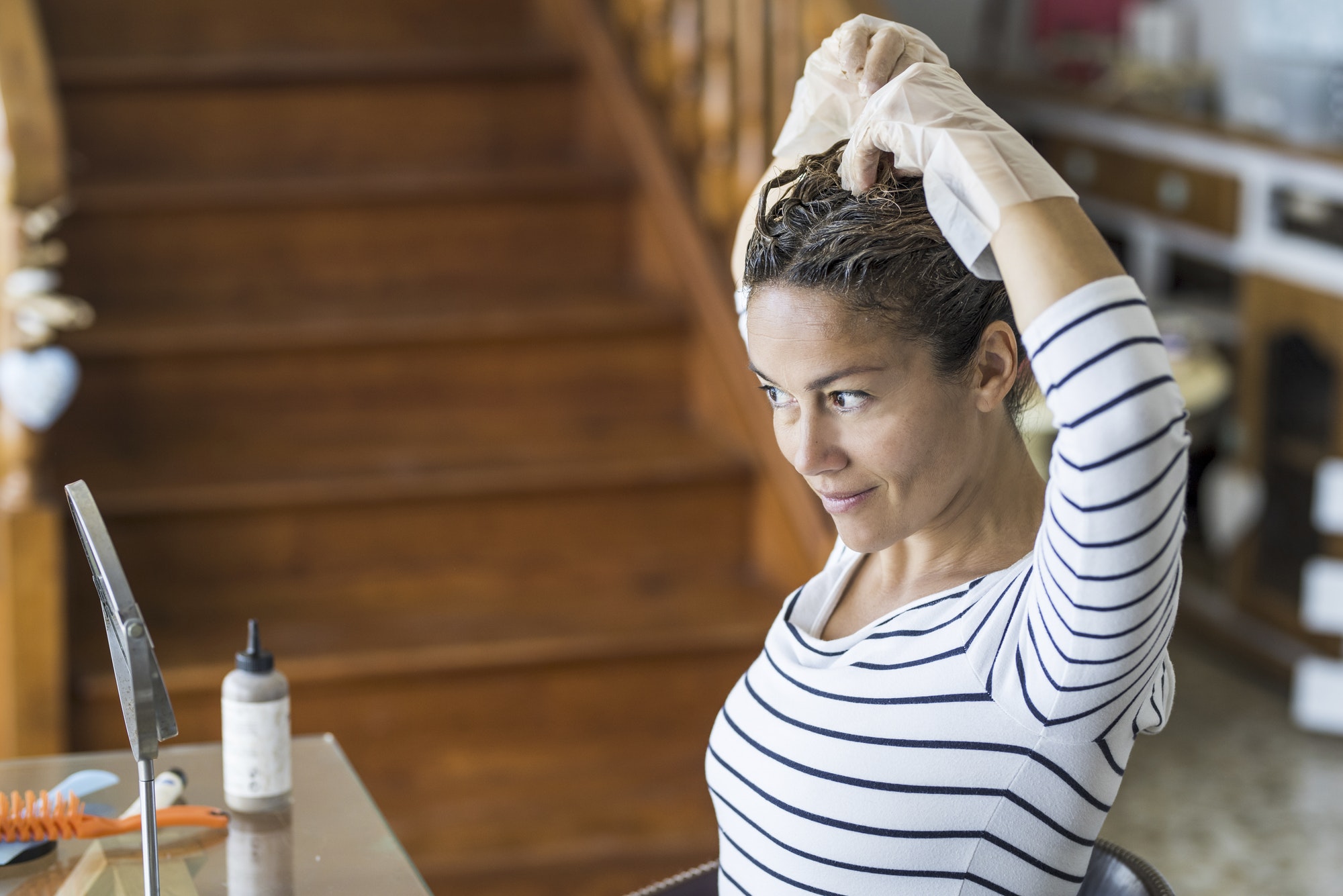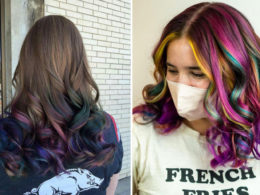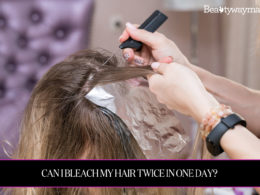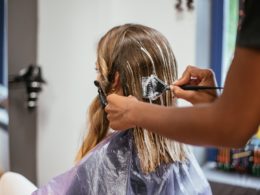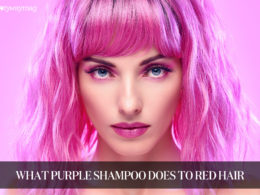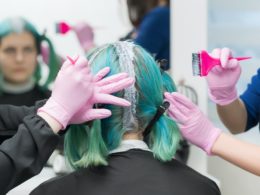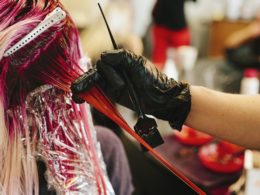Table of Contents Show
When getting your hair dyed, many factors need to be considered to avoid ending up with a damaged scalp or hair roots after the dye is taken out.
Many persons are used to settling for synthetic hair dyes that could cause a lot of damage to their hair if certain precautions are overlooked, but why not settle for an organic hair dye that has no side effects after it is washed out? With this in mind, is henna or hair dye better for coloring your hair?
Henna is safer for use on the hair than hair dye because it is 100% guaranteed not to result in any side effects. Henna has a lot of health benefits it can offer your hair, especially if you are already struggling with damaged hair. On the other hand, hair dye is synthetic, and the chemicals present in its ingredients are more harmful than beneficial for your hair.
Many people think that when you dye your hair, you’re setting yourself up for damaged hair for the rest of your life. This notion is untrue, and yet it keeps many people from dying their hair while in the prime of their lives.
With healthy hair dye options, spacing out how often you dye your hair, using organic hair dye products, treating your hair properly before and after dyeing it and taking your hair type into consideration, you can dye your hair and still have healthy hair.
Henna vs Hair Dye: Which Is Safer?
Healthy hair is just as important as every other aspect of your health and should be taken seriously. There are several reasons why people get discouraged to dye their hair, and most of those reasons revolve around possible hair damage.
However, with the option of using an organic hair dye such as henna instead of synthetic hair dye, the tides change completely.
Below are some points that focus on the differences between henna and synthetic hair dye to explain why henna is safer for use than synthetic hair dye;
1. Henna has no side effects while hair dye has side effects
Pure henna has been used in various civilizations for decades because it is a natural herb that brings no harm to the skin or hair.
As long as you apply pure henna to your hair to dye it and not the variations of henna that are made impure by chemical additives, there are no side effects. Hair dye, on the other hand, has several possible side effects such as hair loss, stripping the hair cuticles of natural oils, and triggering several allergic reactions.
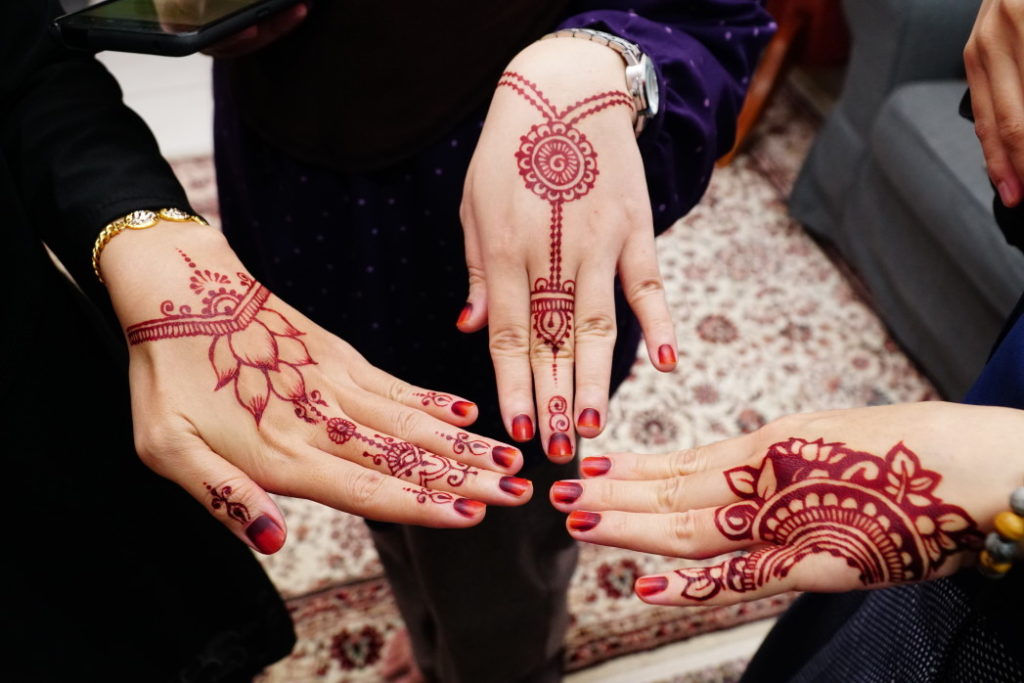
2. Henna strengthens your hair follicles while hair dye destroys them
As a natural herb, pure henna is known for its ability to strengthen the hair follicles when it is applied as a hair dye. Henna has an agent known as tannin that penetrates your hair shaft and makes it stronger with every application; it also gives your hair a healthy and beautiful shine after application.
Hair dye does not provide any of these benefits for your hair. Instead, it is likely to damage your hair follicles, especially if usage is continued.
This happens because of the chemicals present in hair dye that are harmful to your hair shaft and follicles, especially when it is applied in large quantities within a short time frame without proper aftercare procedures being followed.
3. Henna lasts longer than some hair dyes
If you are going for a permanent hair dye that will last you for over a month or two, pure henna is your best bet at achieving that. Henna is a permanent hair dye, and it will stay vibrant in your hair until new hair begins to grow or the color starts to fade out after a month and two weeks have passed.
However, not all hair dyes are permanent and some permanent hair dyes might be of inferior quality which will cause them to fade quickly and require regular touch-ups to keep looming vibrant.
To avoid using too much hair dye in your hair ( which could cause more damage to your hair than not), settle for pure henna which will last longer and benefit your hair as well.
4. Henna costs less than hair dye
After learning of the vast benefits that pure henna has to offer, it is only normal to assume that it would cost a fortune. But instead, this is not the case. Pure henna costs less than most hair dyes available on the market; you might even have to split the prices of some hair dyes into equal halves to get the cost of pure henna. This means that you can save money and still get an effective organic hair dye that is healthy for your hair.
5. Henna kills dandruff while hair dye exposes your hair to dandruff
Asides from strengthening your hair, using pure henna to dye your hair also help to kill off dandruff that may be lurking on your scalp.
Henna can get rid of dandruff because it contains healing properties that help to get rid of bacterial infections such as dandruff that may be causing your scalp discomfort.
Unfortunately, hair dye is not only unhelpful in curbing dandruff, but it also exposes your hair to dandruff when applied. When hair dye removes the natural lipids in your scalp, it leaves it exposed to dandruff and other irritants that could cause damage to your hair.
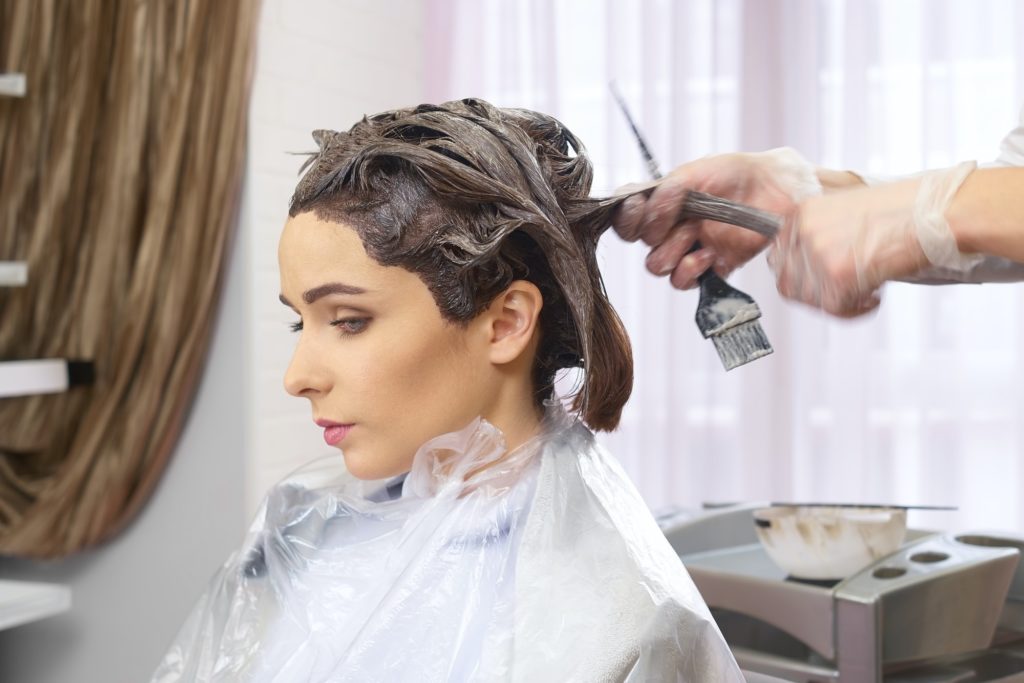
How To Create Different Dye Colors With Henna
Pure henna comes in bright red and can appear in different shades of red when mixed with a paste and applied to different hair colors.
However, not everyone wants a shade of red every single time they dye their hair, and this leaves people with no choice but to settle for synthetic hair dye.
We have discussed above the various disadvantages of using hair dye instead of henna to color your hair, and to give you more color options with the henna application, we will show you some simple ways in which you can create different dye colors using pure henna below;
- To get a burgundy hair color using pure henna all you need to do is add lemon juice or beetroot to your henna powder and mix it with water.
- To get a dark brown hair color using pure henna, you simply have to add freshly boiled coffee or tea to your pure henna powder and mix it thoroughly.
- To get a blue hair color using pure henna, find a jagua fruit and mix it with pure henna or cassis powder and some water.
Frequently Asked Questions
Is henna worse than hair dye?
No, henna is a much safer alter alternative than hair dye in every single way. Henna is organic and healthy, while hair dye is synthetic and unhealthy for the hair. With henna, there are no side effects, unlike the case with hair dye.
Is henna a safe hair dye?
Yes, henna is a safe organic alternative for dyeing or coloring your hair. It strengthens your hair, treats bacterial hair conditions such as dandruff, it gives your hair a natural luster, is very affordable, and lasts for a long time.
What are the side effects of henna?
As long as you are applying pure henna to your hair and not manufactured henna that has been mixed with additives or harmful chemicals, there are no possible side effects you could come across. Henna is an Ayurvedic herb and it can only be beneficial to your hair and protect it from possible damage.
How often should I dye my hair with henna?
Henna is a permanent hair dye and does not need to be retouched often, but if you would like it to last longer than a month and two weeks ensure that you reapply it every 3 to 4 weeks to keep your hair looking vibrant and keep the roots that might be growing out covered.
Should I shampoo after henna?
After applying henna to your hair to dye it, it is advisable that you wait for 48 hours to go by before washing your hair.
Final Thoughts
Choosing the perfect hair dye to color your hair is never an easy choice especially when you are consciously trying to keep your hair healthy no matter want.
It’s okay to want to add a little color to your hair every now and then, but you must do it with caution to avoid struggling with damaged hair after you have taken the color out of your hair.
When the choice to make lands between pure hence and synthetic hair dye, we will always choose henna and you should too.
As we have discussed in detail above, pure henna has several benefits to offer your hair while ensuring that you do not suffer from any side effects. Synthetic hair dye on the other hand will most likely cause damage to your hair follicles that would cost a fortune to recover from.
Keep reading:

